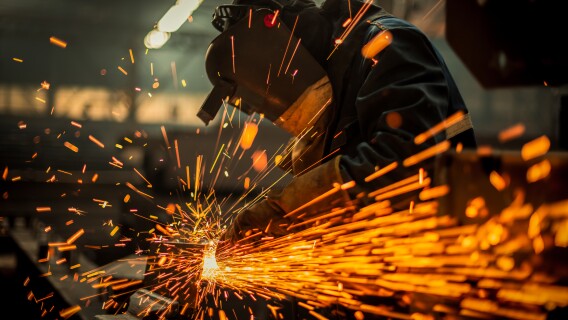Nippon Steel has renewed its proposal to acquire U.S. Steel even after both presidential candidates have come out against it. On the other hand, supporters include U.S. Steel (X) executives, shareholders, and relevant labor unions. We live in a strange world.
Since this involves one of America’s most iconic companies as well as Japan, its most important ally, it is a political hot potato for sure. In addition, the proposal landed amid a heated election year with the company based in the key swing state of Pennsylvania.
The company is not the titan it once was. It is now the fourth-largest steelmaker in America by revenue, and the leader Nucor (NUE) has a market value four times greater than U.S. Steel’s.
To understand where we sit today, we need to look back at the history of steelmaking in America.
Frontier Group research points out that between 1920 and 1955, the amount of steel that could be produced by a single U.S. production worker in an hour more than quadrupled. More recently, between 1990 and 2021, steel mill employment in the United States fell by 58%, while productivity more than doubled.
The trend is clear. American steel mills now produce roughly the same amount of steel with increasingly fewer workers so only about 10% as many people work in the U.S. steel industry as they did in the 1950s.
Increasing productivity is one (good) thing, decreasing demand is another.
[text_ad]
By 1980, almost all U.S. households already had a car, and more than half had two or more. Then, advancements in technology moved producing steel from the iron ore and coal steelmaking that made western Pennsylvania legendary to manufacture of steel from scrap in less labor-intensive “mini-mills.” This is basically recycling and accounts for about 30% of steel manufactured worldwide today.
Putting the politics and history aside for a moment, let’s explore if this deal is good for America and then what investors should do if they now hold U.S. Steel (X) or are considering buying it.
Let’s begin with that in poker terms. America’s ace in the hole is its openness to international investment. This is especially true at a time when America clearly needs capital investment to rebuild the sorry state of its industrial and defense base.
International direct investment has been and is important to American jobs, manufacturing, innovation, and economic growth. By investment I mean foreign direct investment (FDI) – when companies headquartered abroad build facilities, purchase equipment, hire workers and create products and services in the United States.
For the most part, America treats international companies investing and operating here on par with American companies. Therefore, America consistently leads the pack as the world’s top destination for FDI. This is important because oftentimes international investment drives exports.
These subsidiaries of international companies make a significant contribution to America’s economic growth. Roughly, 20% of the American manufacturing workforce and about half of all American manufacturing jobs created in the last five years are due to international investment. International investment accounts for nearly 7 million high-paying jobs in America, and these subsidiaries of international companies produce 22% of total U.S. exports.
Now let’s get back to ally Japan and the current proposal for Japan’s Nippon Steel to acquire U.S. Steel.
Nippon Steel, the world’s 4th largest steel company will do more than just inject new capital and technology into U.S. Steel, which is currently ranked 27th in the world. Under the agreement, U.S. Steel would retain its iconic name and Pittsburgh headquarters, and steel will remain mined, melted, and made in America. Importantly, Nippon Steel will honor all pay and benefit agreements with the United Steelworkers.
After all, even after the buyout, U.S. Steel would keep its name and the transaction would allow the merged company to be the world’s second-largest steelmaker, after China’s Baowu Group. China now makes 50% of the world’s steel.
In 2023, U.S. Steel’s revenue fell 14% and profits fell 65% and it is likely that if Nippon Steel doesn’t come to the rescue, U.S. Steel’s Mon Valley Works with 3,000 workers would be closed, and the company would probably move headquarters from Pittsburgh to Arkansas.
What I hate the most?
U.S. Steel chief executive Dave Burritt stands to receive a $70 million change-in-control bonus if the merger deal goes through. This is outrageous.
The stakes are high. U.S. Steel (X) stock has gone from 29 to 39 this month despite all the negative political feedback which means some investors think that a deal might go through at the proposed 55 offer. Another possibility is that another buyer comes into the picture. Finally, it could all fall apart and the stock would be vulnerable to going back to 29 or worse.
I would pass on U.S. Steel at this level but what about its larger and more nimble competitors?
Join the Cabot Explorer today to find out which stock is a buy.
This is what makes global investing interesting, difficult, and profitable if you are on the right side of a speculative situation.
[author_ad]
